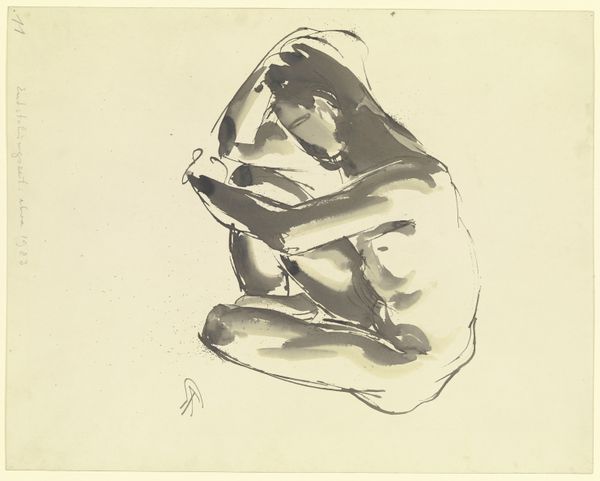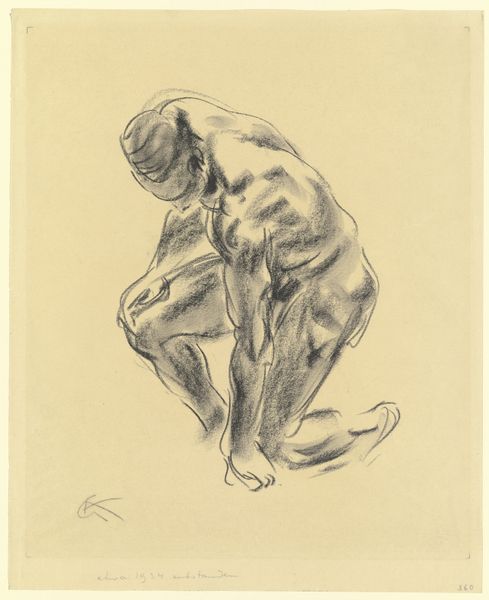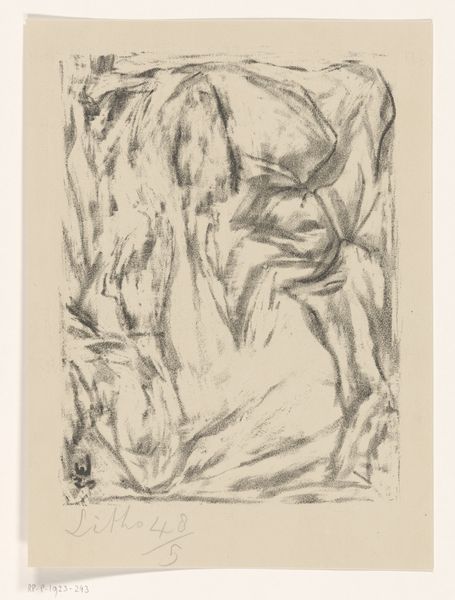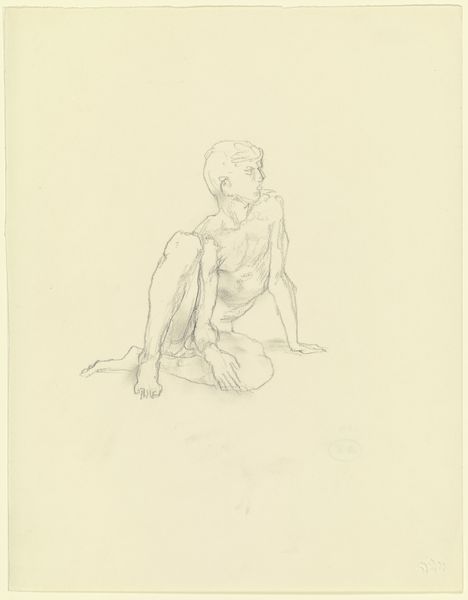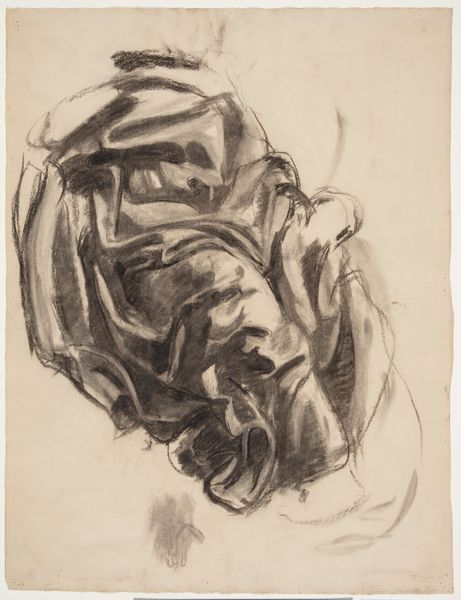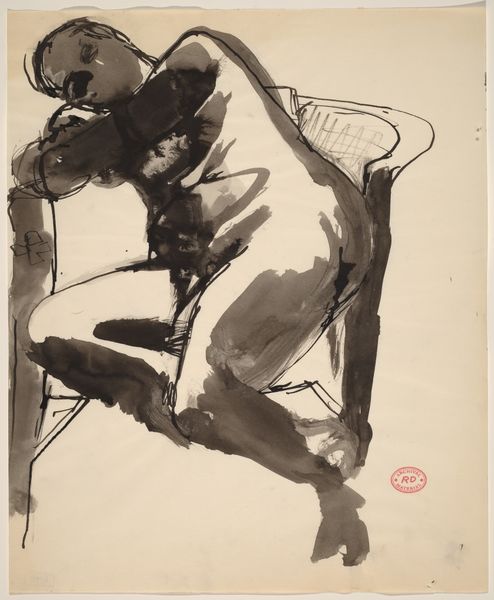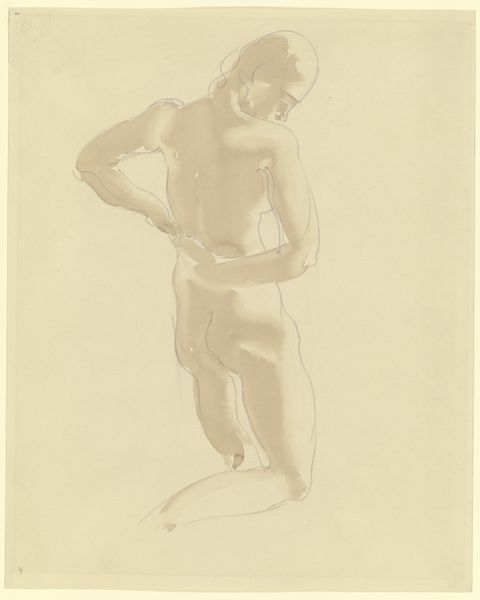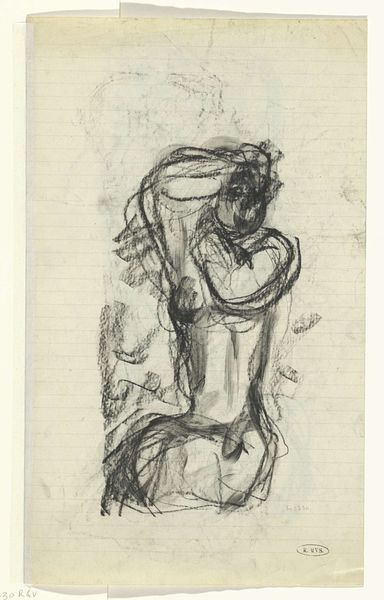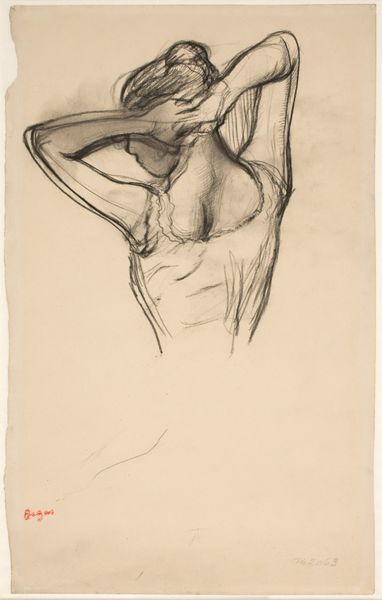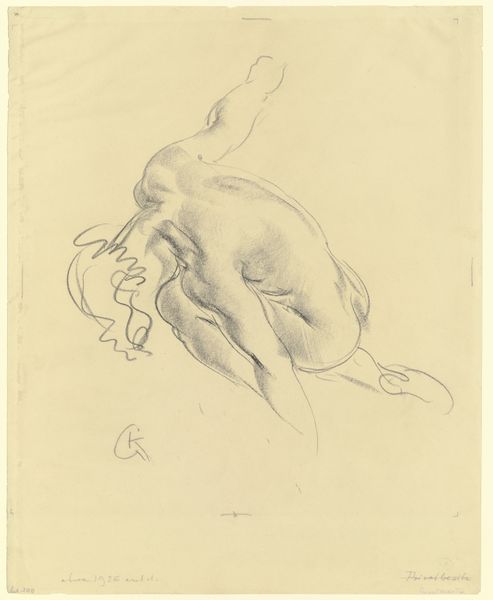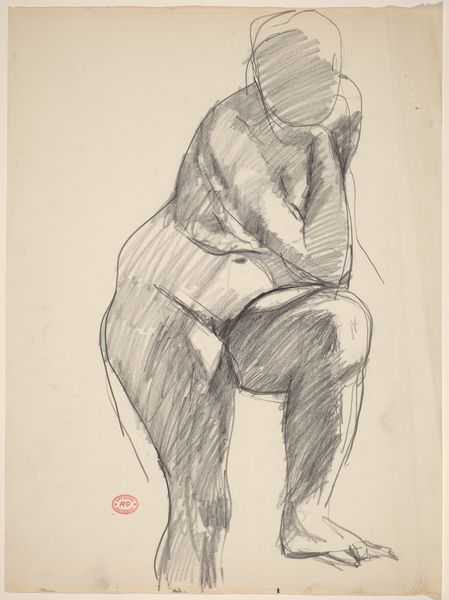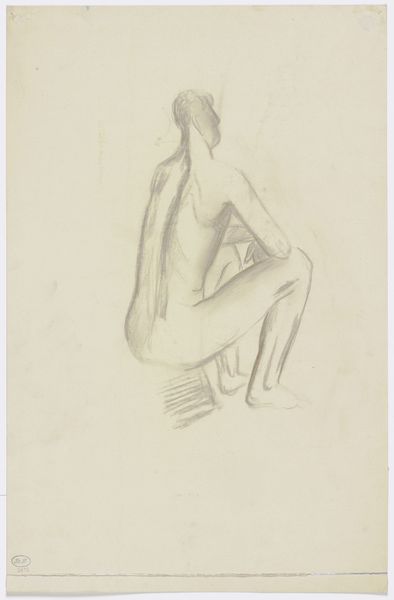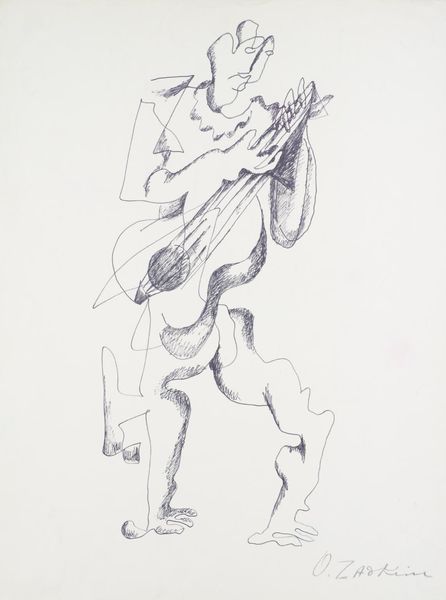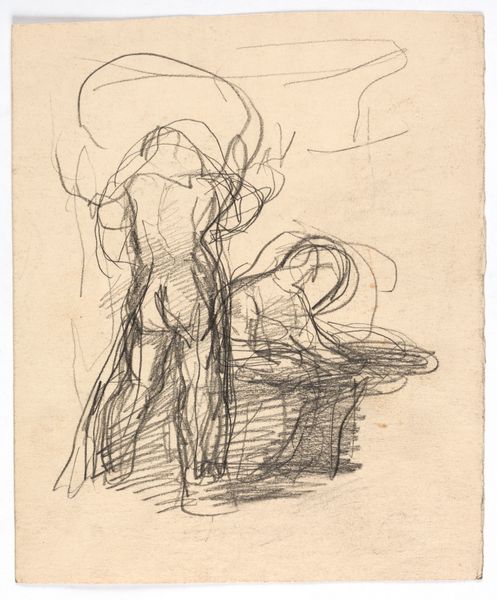
Kniender männlicher Akt, vornübergebeugt, den linken Arm hinter den gesenkten Kopf gelegt 1928
0:00
0:00
drawing, paper, pencil
#
portrait
#
pencil drawn
#
drawing
#
german-expressionism
#
figuration
#
paper
#
pencil drawing
#
pencil
#
expressionism
#
portrait drawing
#
nude
Copyright: Public Domain
Georg Kolbe made this charcoal drawing of a kneeling male nude in 1928. This contemplative image exists in the context of Germany’s Weimar Republic. The Republic struggled with economic hardship and political polarization, between the end of the First World War and the rise of Nazism. Kolbe, who would later become a favorite sculptor of the Nazi regime, here depicts a figure in a pose of introspection or supplication. The figure may reflect the widespread sense of national vulnerability and uncertainty felt in Germany at the time. His work reflects a complicated cultural and institutional history. While Kolbe's art aligns with some of the humanistic ideals of the Weimar era, the artist's later co-option by the Nazi regime highlights the complex relationship between art, politics, and power. Historians might consult period sources such as newspapers, political manifestos, and exhibition reviews to gain a deeper understanding. Ultimately, works like this remind us that the meaning of art is always contingent on the social and institutional context in which it's made and received.
Comments
No comments
Be the first to comment and join the conversation on the ultimate creative platform.
